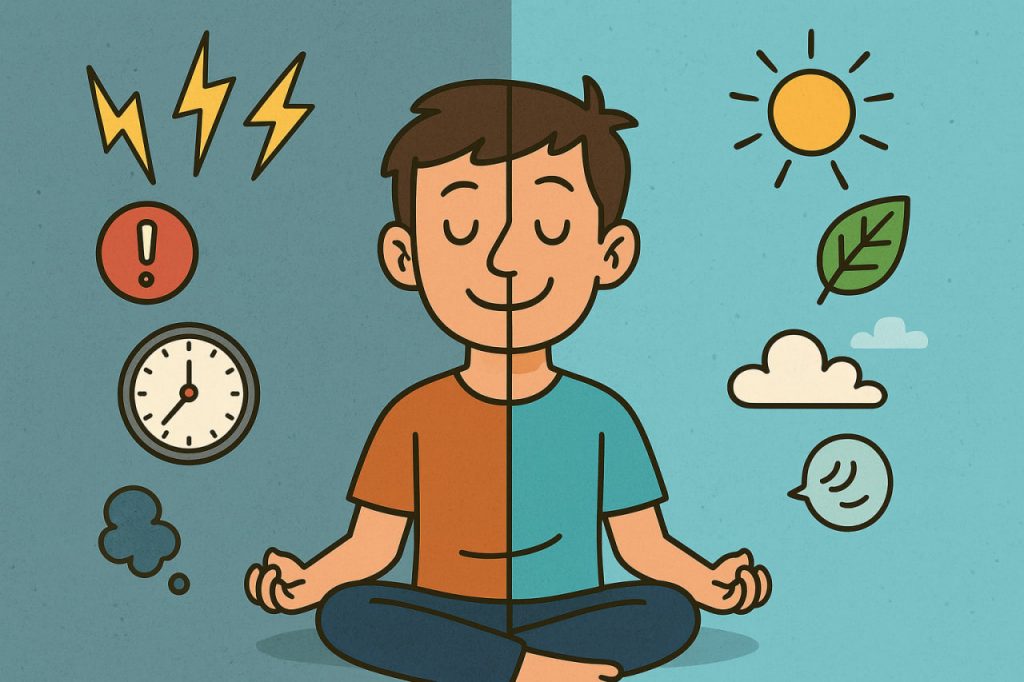Stress is a natural reaction of the body to challenges or threats, but when it becomes chronic, it negatively impacts physical and mental health. Recognizing stress levels early allows a person to take timely measures and prevent serious consequences such as insomnia, high blood pressure, or anxiety disorders. Understanding how to identify stress and applying effective strategies to reduce it is key to maintaining balance and well-being.
How to Identify Stress Levels
Stress manifests in different ways, often combining physical, emotional, and behavioral symptoms. Common signs include:
- Physical signs: headaches, muscle tension, rapid heartbeat, fatigue, digestive problems.
- Emotional signs: irritability, anxiety, mood swings, feeling overwhelmed.
- Cognitive signs: difficulty concentrating, forgetfulness, racing thoughts.
- Behavioral signs: overeating or loss of appetite, sleep disturbances, withdrawal from social activities.
Some people may also use self-assessment tools like questionnaires or stress scales, but long-term or severe symptoms should be discussed with a specialist.
Why It Is Important to Manage Stress
Chronic stress affects nearly all body systems. It weakens immunity, increases the risk of cardiovascular diseases, disrupts digestion, and accelerates aging. Mentally, it contributes to depression, anxiety, and reduced productivity. Detecting stress early and reducing it prevents serious health issues and supports emotional resilience.
Practical Ways to Lower Stress Levels
- Breathing exercises: deep, slow breathing activates relaxation responses in the body.
- Physical activity: walking, yoga, or any form of exercise reduces stress hormones and improves mood.
- Healthy sleep: 7–9 hours of quality rest restores the nervous system.
- Balanced nutrition: avoiding excess caffeine, sugar, and processed foods helps stabilize mood and energy.
- Mindfulness and meditation: focusing on the present moment reduces racing thoughts.
- Hobbies and relaxation: creative activities, music, or time in nature calm the mind.
- Social support: talking with friends, family, or professionals provides emotional relief.
When to Seek Professional Help
If stress becomes overwhelming and self-help strategies are not effective, it is important to consult a psychologist or therapist. Professional guidance helps develop personalized coping strategies and prevents the development of chronic mental health conditions.
Conclusion
Recognizing stress levels and acting to reduce them is crucial for health and quality of life. By observing physical, emotional, and behavioral signs, people can identify when stress is becoming harmful. Healthy lifestyle habits, relaxation techniques, and social support are powerful tools for reducing stress, while professional help ensures safety when stress levels are too high.
Glossary
- Chronic stress – long-term stress that negatively affects health.
- Relaxation response – the body’s natural state of calm after stress reduction.
- Mindfulness – practice of focusing on the present moment without judgment.
- Stress hormones – substances like cortisol and adrenaline released during stress.
- Resilience – the ability to adapt and recover from difficulties.


